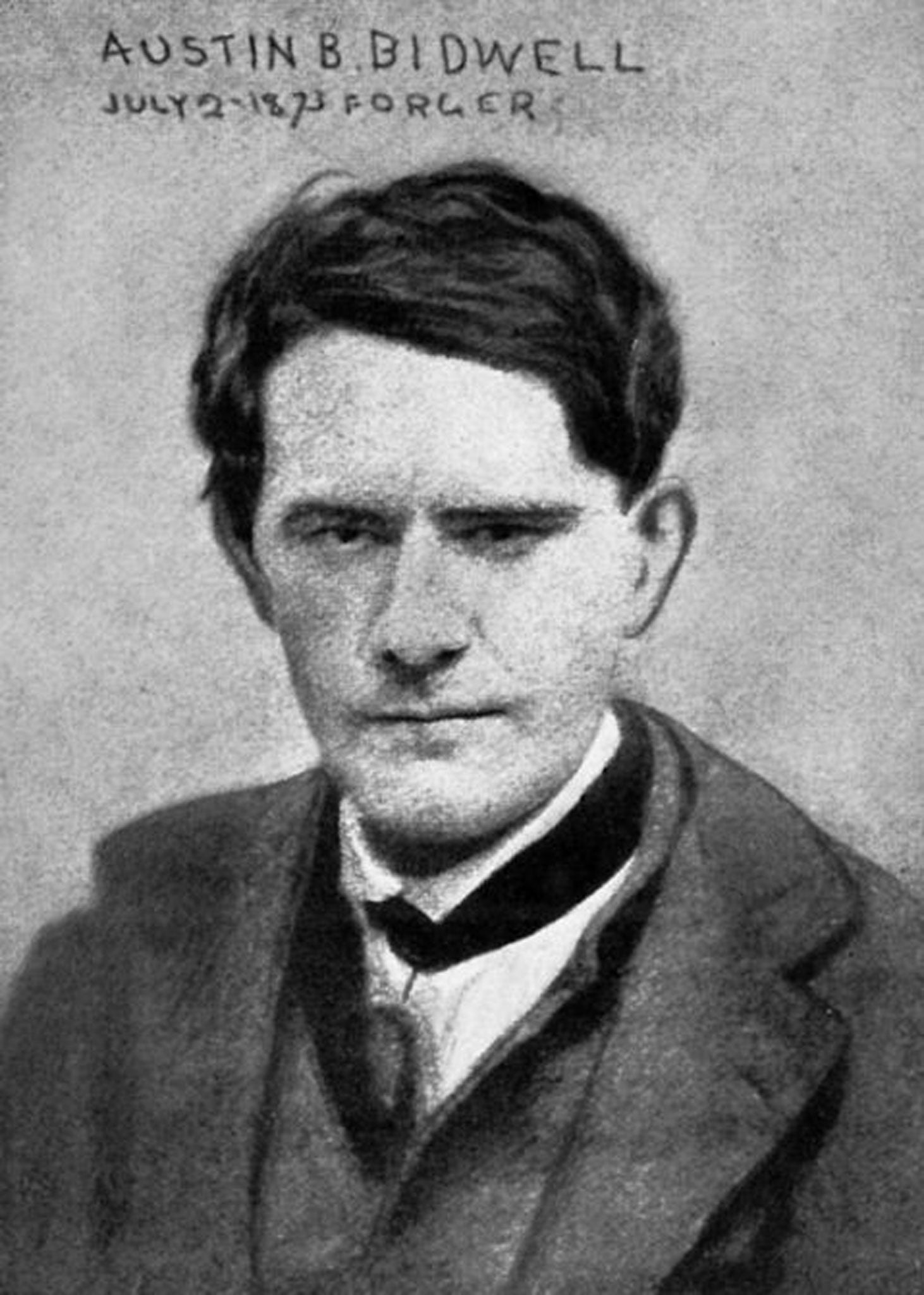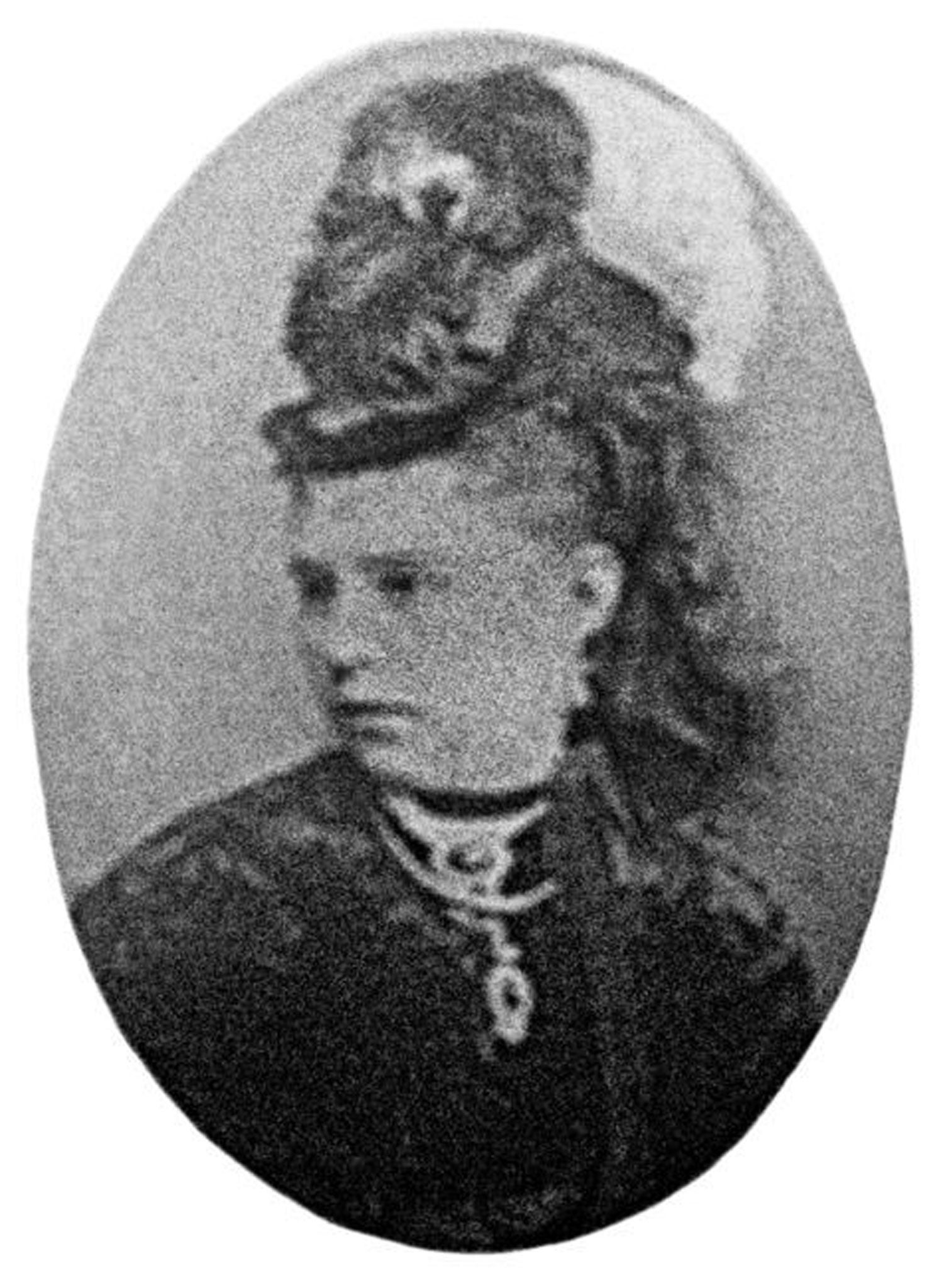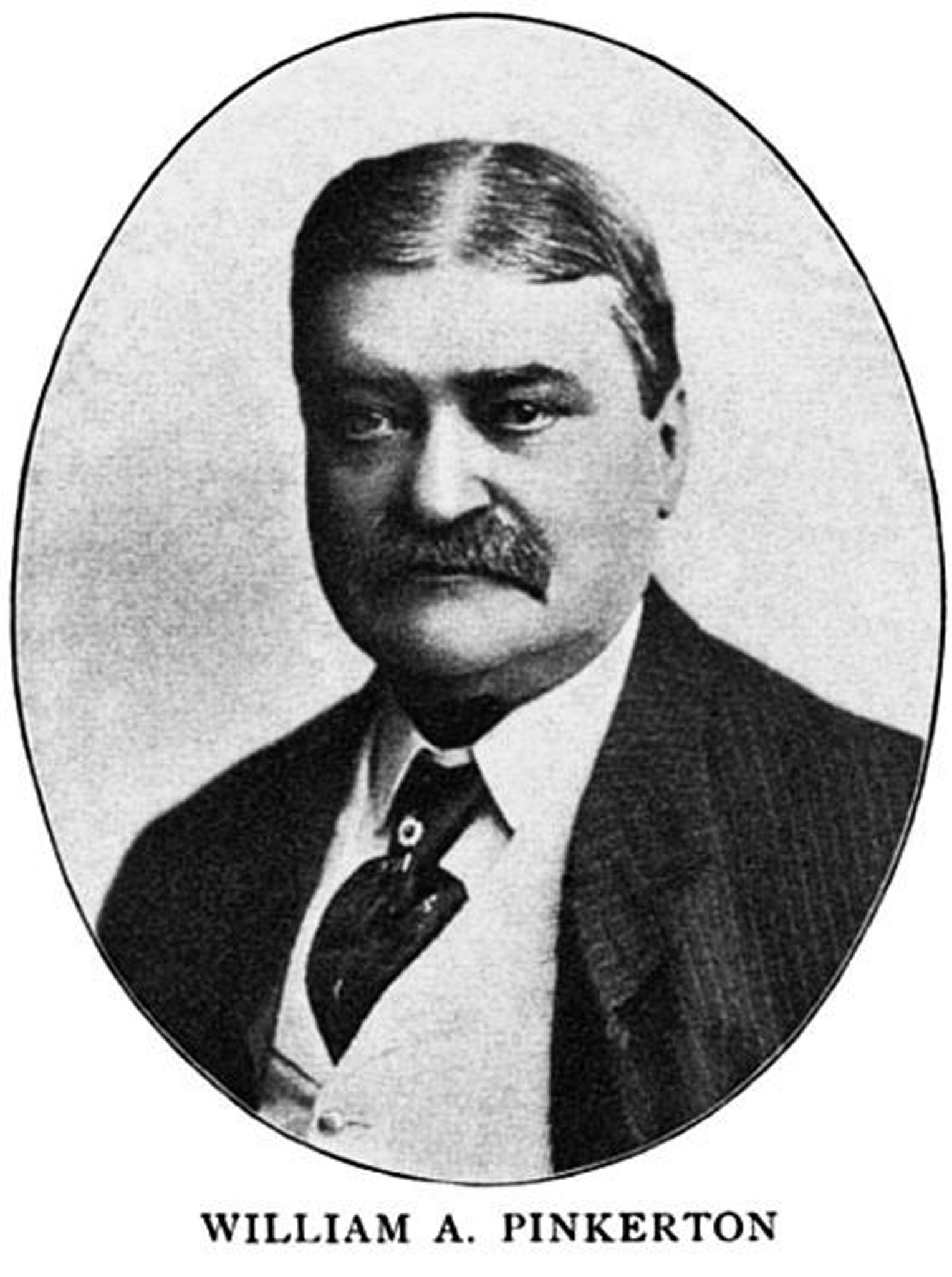Austin Bidwell: The Victorian fraudster who shook the Bank of England with the most daring forgery the world had known
Though the Square Mile is fretting over its reputation, it was no better in the 1870s, says Nicholas Booth, the author of a new book about conman Austin Bidwell. But at least the heartless cad who tried to fleece the Bank of England did it with panache

Your support helps us to tell the story
From reproductive rights to climate change to Big Tech, The Independent is on the ground when the story is developing. Whether it's investigating the financials of Elon Musk's pro-Trump PAC or producing our latest documentary, 'The A Word', which shines a light on the American women fighting for reproductive rights, we know how important it is to parse out the facts from the messaging.
At such a critical moment in US history, we need reporters on the ground. Your donation allows us to keep sending journalists to speak to both sides of the story.
The Independent is trusted by Americans across the entire political spectrum. And unlike many other quality news outlets, we choose not to lock Americans out of our reporting and analysis with paywalls. We believe quality journalism should be available to everyone, paid for by those who can afford it.
Your support makes all the difference.The two Americans who were jammed into the cramped cell of Havana's military jail had been adversaries for years – but only now, in the spring of 1873, had they finally caught up with each other. And the circumstances were extraordinary.
One had masterminded an astonishing heist, defrauding nearly £10m in today's money from the Bank of England during a two-month window of opportunity. (Among the most audacious of daylight robberies, it was accomplished by trading forged foreign promissory notes for cash.) The other was, by repute, the greatest detective in America, who had instigated the remarkable manhunt leading to this meeting.
Stout, florid and perspiring in the heat, the heavily bearded William Pinkerton, scion of the famous detective dynasty, had been characteristically indefatigable in tracking down his quarry, travelling from New York to London, and thence to Havana. Glassy eyed, hollow -cheeked and very tired, his prisoner was, in one estimation, "a smooth, easy talker and a person who is likely to inspire confidence with anyone with whom he talked".
As bankers all over the world – in Frankfurt, Liverpool, Manhattan, Rio, Paris and Chicago – could attest, that was putting it mildly. It was the prisoner's incredible charm that explained how he had conned them in the past – and why he had been able to relieve more than £100,000 from the Old Lady of Threadneedle Street, where he had been known as Frederick Albert Warren. To the others who had fallen over backwards to lend him money, he was known as Charles J Horton. So far as bewildered officials were concerned, he was an international man of mystery. Following his plan's collapse, they had discovered at least more 20 aliases. But his real name was Austin Biron Bidwell, he was just 27, and along with his eldest brother George (a serial womaniser and ne'er do well) and a couple of accomplices, he had – in Willie Pinkerton's judgement – carried out the most daring forgery and fraud the world had ever known.

City fraud is back in the news this week. The City of London Corporation has issued a warning that its reputation is threatened by gangs operating within its jurisdiction. (In 2014, they funnelled at least £1.7bn out of the accounts of mostly elderly and vulnerable people – who then had to contend with further scammers offering to get their money back.) Still, the City always attracts crooks. On the first day of March 1873, it was only the accidental omission of the date on a forged document that exposed the Bidwell operation. What resulted was "a worldwide hue and cry", as one newspaper said at the time, playing out as a cross between Ocean's Eleven and Sherlock Holmes. Except in this case, the real-life sleuth was Willie Pinkerton who, even now, had only caught up with Austin Bidwell after yet another escape, a chase across Cuba and a dramatic sabre fight.
Austin Bidwell's life, to date, had "surpassed the imaginations of our famous novelists" in another contemporary appraisal. Indeed, Anthony Trollope would start The Way We Live Now a few weeks later as a thinly disguised parable based on his exploits. As one of his later prosecutors aptly put it, his story was a "capital instance of misapplied genius" – which in this case included silencing their best witness by marrying her. Jeannie Devereux was a beautiful, naive girl of 18 who had fallen for Austin in the summer of 1872. Austin was a professional American criminal who had recently moved his operations to London. Her family were living in genteel poverty near Marble Arch; and though he would have preferred her as his rich man's plaything, she declined. It was marriage or nothing. Though assuaged by his self-evident wealth, only later did she find out that her honeymoon had been paid for with stolen money. But by then, it was too late to do anything.

Austin Bidwell was one of the most elusive criminals in history. However, throughout late 1872, his various unexplained disappearances and hastily-written letters from all over the world convinced Jeannie's mother that he was up to no good. And so it was that, one January day in 1873 – when Austin and Jeannie were about to head for St. Martin's-in-the-Field to get married – the screaming banshee that was Mrs Devereux suddenly appeared out of nowhere. "Just as I was stepping into a cab with my fair bride," Austin later told Pinkerton, "along came the cruel mamma", who grabbed her daughter and gave her "a fearful pounding".
Prevented from marrying, the couple eloped to Paris, with Austin's assurances buoying Jeannie up: "You will have plenty of money in your pocket, and that makes all the world your slaves and you can never be embarrassed." And so it might have been, but for a simple slip. After the February ceremony in Paris, the rest of the gang returned to London, to complete the scam before the forged bills became "due", while the newlyweds headed via Spain for the West Indies. When it all fell apart three weeks later – because a date was left off a forged document – one accomplice was arrested and the others scattered. And Willie Pinkerton had a pretty shrewd idea of who was behind it all.
Pinkerton had first encountered the Bidwell gang in his native Chicago and followed their forgeries, swindling and defrauding of banks for the best part of a decade. "So ingeniously were their schemes planned and so cleverly was their work executed," he marvelled, "that for a long time, they escaped detection." But thanks to his own unparalleled network of informants, in 1872 he learned something big was being planned in London and travelled there. In November of that year, he would later tell Austin, he had actually seen him on the Strand – to which his imprisoned charge, all colour drained from his face, replied: "Pinkerton, for God's sake, why did you not speak to me? I would have given you $50,000 to mind your own affairs and not do as you have done."

Still, even under lock and key in Spanish-ruled Havana, Austin Bidwell thought he would get away with it. His absence from London at the most crucial juncture meant, in his estimation, that any evidence against him was hearsay. And, until my research, most of the accounts about the "great forgery" can be classed as the same. All the thieves of Threadneedle Street were inveterate liars and fantasists who shrouded their endeavours in mystery, but even Pinkerton was prone to self-aggrandisement.
For example, in Austin's later version of events, Willie Pinkerton had suddenly appeared in Cuba, apologised for spoiling a dinner party and announced he had a warrant for the fugitive's arrest. When offered a glass of wine by the urbane forger, the detective had supposedly agreed, adding: "I never drink anything but Clicquot" and then Austin had pulled a gun, shot a policeman and tried to escape. In Pinkerton's later recollection, the detective claimed he had "passed the very ship that had Bidwell on board while rounding him into port" and arrested him there and then. But as his own files show, the detective didn't actually arrive for another two weeks, by which time Austin Bidwell was in custody. Nor was anyone shot. In fact, Pinkerton really got his man by sowing doubts in the mind of his wife.
Jeannie Bidwell had never known what her husband had really been up to. The first she even learned of the great fraud was when American newspapers reported it. (It was to be headline news for weeks on both sides of the Atlantic.) "Who had the audacity to rob the Bank of England!" she exclaimed. "He ought to have a whipping!" Austin wisely said nothing. But when gossipy American expats asked who was behind it all, he smilingly conjectured that it was "some clever young scamp, with plenty of money of his own, who did it for the excitement of the thing and from a wish to take a rise out of John Bull". Which, from such an incorrigible liar, wasn't too far from the truth for once.
However, by the time Pinkerton met Jeannie in April 1873, her world had fallen apart – as we can see from hitherto unknown letters to her mother. "One evening we were romping, Austin and I, and a knock came very loudly," she wrote. After opening the door, "in walked the [local] police". By the time Pinkerton arrived, and it was left to the detective to explain Austin's actions – and indeed to embellish them, with tales of bigamy and what Jeannie called "all those other women".
When Jeannie reproached her husband with this in a letter to his cell, he replied: "Those children of mine and the wife that the detective spoke to you of are my brother's property. You must allow yourself, dear, that if I was a father at twelve years of age, I began very young."

Still, Pinkerton became a canny go-between, reading and copying their correspondence – which also revealed beyond any doubt that members of the New York Police Department were involved with the gang. Pinkerton himself promptly arrested a suspected New York "swell thief" who had come as an emissary from the underworld to spring their ally.
What then played out was a game of cat and mouse – and not just in Cuba. George Bidwell – a baleful influence on his brother – had what he later termed "a series of the most extraordinary adventures" across Ireland and Scotland ("a hell's chase, and no mistake") before lapping up the attention at his subsequent trial. Another of the gang, George Macdonnell ("a debonair scoundrel") made it across the Atlantic where he handed his spoils to corrupt NYPD detectives. "I'm clean," he taunted Pinkerton's operatives. "You can't prove anything on me."
But Austin was dealing with more than just Pinkerton. As his nemesis – to quote the Bank's solicitors, Freshfields – an "adversary whom the forgers had least of all suspected had sprung up: that is to say, [his] mother-in-law".
Though she had reluctantly attended the Bidwells' wedding, Mrs Devereux actually fainted during the ceremony and was certain that her son-in-law was up to no good. So when the police alerted the London press that Mr Warren/Horton had been "accompanied by a young woman 18 to 20 years, looks younger with golden hair", Mrs Devereux knew perfectly well who that was and went to the nearest solicitors. Before long, a letter from Jeannie to her mother with a St Thomas stamp arrived, the search zeroed in on the Caribbean, and Pinkerton learned of a glamorous young couple who had recently arrived in Havana. An "all points" bulletin, issued on the evidence of Jeannie's mother, led to Austin being put under guard. By the time he arrived in Cuba, Pinkerton was certain the authorities had been bribed to look the other way. Austin Bidwell had been allowed to spend the first night of his detention in his luxurious hotel, the Telegrafo. And when the police moved him to barracks, they failed to search him, provided him with gourmet meals and let him receive visitors. Pinkerton knew well what his quarry was capable of. Indeed, over Easter, Austin escaped, and he was only apprehended after crossing swords with a Cuban captain, some 50 miles from Havana.

In Austin Bidwell's version of the escape, he had made a dramatic leap from a balcony into the crowded street below. As Pinkerton determined, the fall would have killed him, and he had simply bribed his warders. But then, money – and the want of it – was at the heart of Bidwell's story. And even in what the Lord Chief Justice later described as "the most remarkable trial that ever occurred in the annals of England", scant attention was paid to the human cost, certainly by the criminals. Both Bidwell brothers were sentenced to life with penal servitude (though they were released in the 1890s). And George later noted they had left behind "no ruined widows and orphans to linger out the remainder of their blighted lives in poverty". Which was not quite true.
Jeannie endured a terrifying episode on the Bidwells' return to London in May. (Austin was consigned to Newgate jail; she went back to her mother.) Having become pregnant in Cuba, one evening in September she went into labour. A little girl briefly came into the world and moments later passed away, while Jeannie herself nearly died. The dead infant was wrapped in a night shirt and dispatched by carriage to an undertaker, chosen at random from a directory. This was technically illegal, as she had not obtained a death certificate, and the police soon traced the unfortunate family.
Two weeks later, Jeannie Bidwell was arrested and taken to Bow Street Magistrates Court. Because she was so young and ill, and had already suffered so much, there was a great deal of sympathy. Jeannie's mother – "a well dressed woman of respectable appearance" in one report – and a servant were also placed in the dock. All three were bailed but at the start of October, their cases were dismissed.
Wiser and cooler heads had prevailed. For once, the Victorian legal system was compassionate and realised that the poor girl had suffered enough. While Austin Bidwell found it amusing that he had embarrassed the Old Lady of Threadneedle Street by holding "up to the laughter of the whole world its red-tape idiotic management", poor Jeannie Bidwell was sent to a workhouse in nearby St Giles, becoming the one indisputable victim of the greatest ever forgery in history.
'The Thieves of Threadneedle Street: The Victorian Fraudsters Who Almost Broke the Bank of England', by Nicholas Booth, is published by The History Press
Join our commenting forum
Join thought-provoking conversations, follow other Independent readers and see their replies
Comments